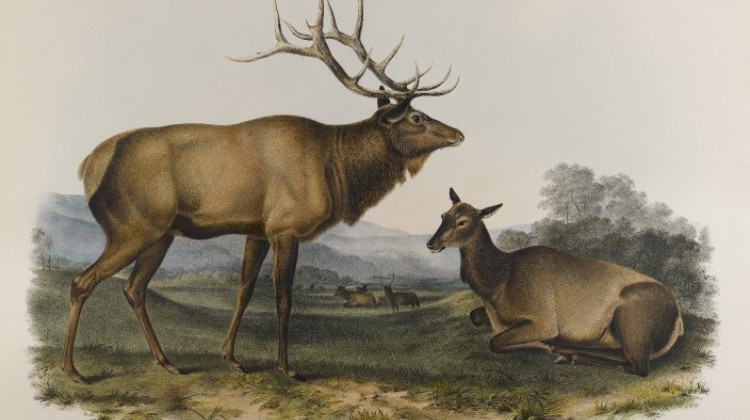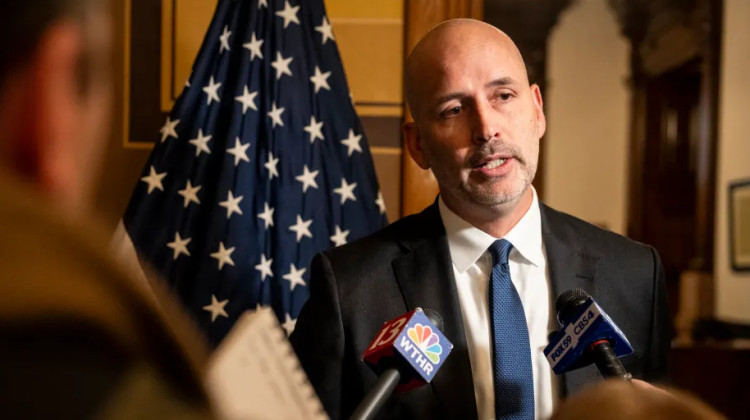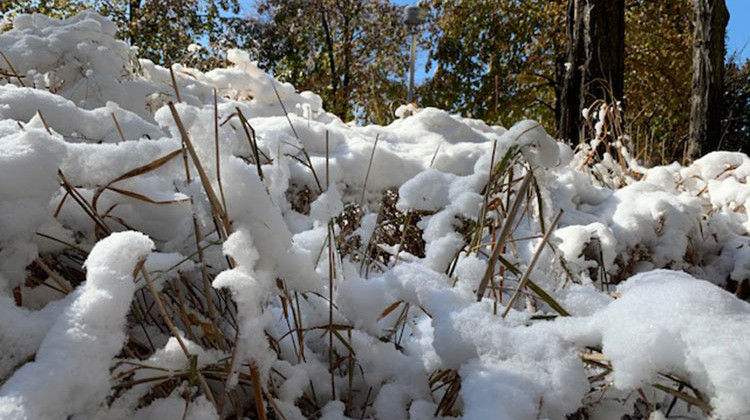
A lithograph of the eastern elk by John James Audubon. It used to live in Indiana until it became extinct in 1880.
Brooklyn Museum/Wikimedia CommonsIndiana and the rest of the world are going to have to make transformative changes — and fast — to avoid losing more than 1 million species of plants and animals. That’s the takeaway from the Intergovernmental Science-Policy Platform on Biodiversity and Ecosystem Services (IPBES) report released this week.
Indiana University anthropology professor Eduardo Brondízio co-chairs the group that made the assessment.
“Species decline now is connected to the quality of our freshwater, to the quality of our environment, to the security of our food production systems, and our ability to have options in the future,” he says.
Brondízio says unsustainable agricultural practices, Indiana’s many coal-fired power plants, and industrial pollution in the state likely negatively impacted species’ habitats. But he says the U.S. is slowly moving toward more sustainable practices — take farms, for example.
“Organic agriculture. You see an increase in smaller scale production that tends to be more sustainable. You see an increase in more localizing,” Brondízio says.
Brondízio says to prevent species losses, people will have to start thinking about nature in every aspect of their lives — from the individual to big businesses to world leaders.

Indiana Environmental reporting is supported by the Environmental Resilience Institute, an Indiana University Grand Challenge project developing Indiana-specific projections and informed responses to problems of environmental change.
 DONATE
DONATE







 Support WFYI. We can't do it without you.
Support WFYI. We can't do it without you.